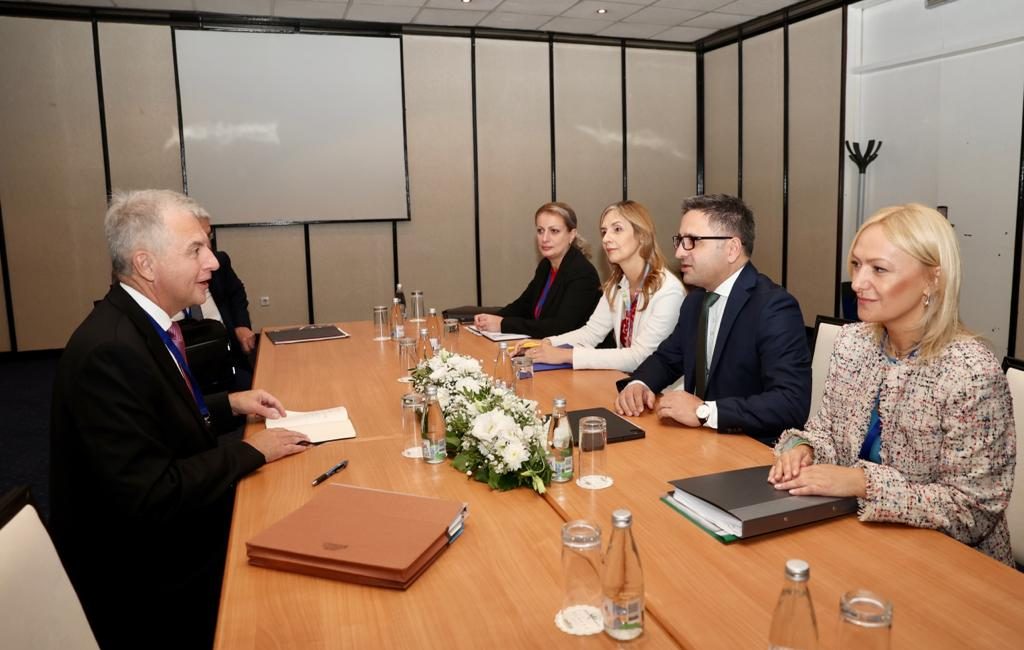15th September 2022, Sarajevo – Public finance reform must continue alongside policies aimed at overcoming the ongoing challenges from the global price pressures and the energy crisis. This is the only way of ensuring sustainability and development of the economy in the medium and long term, as pointed out at the meeting held between the Delegation headed by Minister of Finance, Fatmir Besimi and the Governor, Anita Angelovska-Bezhoska with the Director of the European Department at the International Monetary Fund, Alfred Kammer and the Deputy Director of the Western Hemisphere Department at the International Monetary Fund, Julie Kozack, held within the annual IMF and WB Dutch Constituency, which our country is also a member of. Annual Meeting is held in Sarajevo, Bosnia and Herzegovina.
Minister of Finance, Fatmir Besimi pointed out that the new systemic Organic Budget Law, being in line with the IMF and EU recommendations, is under final adoption phase. The Law, which will bring crucial innovations in the field of public finance – such as Fiscal Council and fiscal rules, integrated system, medium-term budgeting, is expected to be adopted by the Parliament in the course of September, with a broad consensus, given its vital importance.

Commitments to preserving macroeconomic stability were highlighted at the meeting, being coupled by the planned medium-term fiscal consolidation, as well as further support for the economic growth via public investments, also including the budget structure change in support of scaled up investments. This is also foreseen under the 2022-2026 Fiscal Sustainability and Economic Growth Support Plan, incorporating fiscal consolidation measures, by streamlining certain costs, as well as measures aimed at improved tax collection. Tax reform is carried out along therewith, which should ensure more just coverage as regards the taxpayers by excluding the exemptions and the preferential treatment. Furthermore, Plan will provide for sustainable and growing economy, including measures aimed at ensuring long-term consistency at government policies, as well as designing multi-year indicators for assessing the long-term effects from the projects financed with the Budget.
As for the ongoing circumstances, it was stressed that the war in Ukraine brings high uncertainty in the short term, and in accordance therewith, the developments should be monitored, while adopting specific measures therefor. Minister Besimi underlined that the Government adopted, at very outset of the crisis in March, a set of anti-crisis measures worth EUR 400 million, whereby new targeted measures are planned to be put into place. On the medium run, stabilization of the supply chains, as well as intensified economic activity is expected globally, which will undoubtedly positively reflect on the domestic economy as exceptionally open one.
















